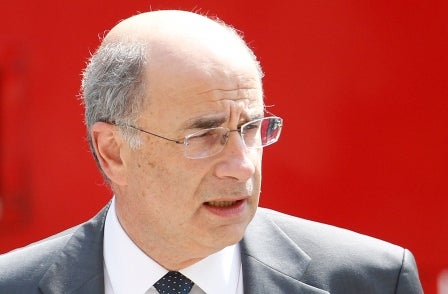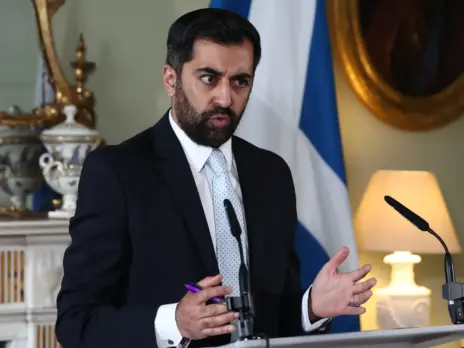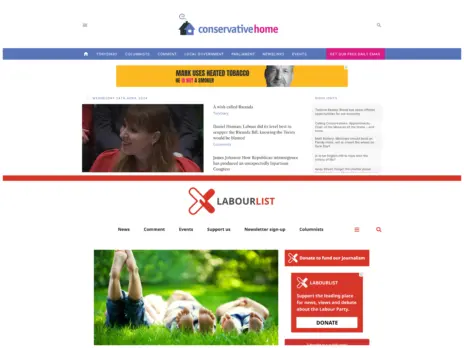
Beyond celebrities and bereaved parents, the Leveson Inquiry into Press standards is focused on proposing a new system for regulating Britain's newspapers.
Lord Justice Leveson's recommendations could radically change the way media organisations operate in the UK.
He said he wants a body independent of the establishment and the press, which will provide redress, particularly to those who cannot afford expensive legal action, and a mechanism of swift resolution for privacy and libel cases.
Those who complain of press harassment have said the inquiry must produce a system that tackles invasions of privacy, damaging inaccuracies and the culture that resulted in the phone-hacking scandal.
But journalists and editors warn that freedom of expression will be threatened if the current Press Complaints Commission (PCC) is replaced by a regulator with wide-ranging powers to clamp down on newspapers.
Here are some of the key proposals to come out of the inquiry:
-
"PCC-plus"
The PCC is at the heart of the system of self-regulation which handles complaints about British newspapers and magazines.
Funded by the press, with editors on its decision-making board, it has been criticised for being "toothless".
One option for Lord Justice Leveson is to recommend a beefed-up PCC with extra powers and resources to carry out inquiries and punish breaches.
The general consensus is that the PCC's 16-point code of practice for journalists, covering everything from accuracy to intrusion into grief, is a good basis for ethical practice.
But many witnesses said it could have more powers.
Lord Black, chairman of the funding body for the PCC, recommended a new body with the power to launch investigations and levy fines of up to £1 million.
Recommendations to force people to sign up could include denying access to the Press Association newswire.
Current PCC chairman Lord Hunt of Wirral proposed turning the body into a true regulator of newspapers, with separate arms for dealing with complaints and enforcing standards, and a possible third arm with powers to mediate in disputes with newspapers and award compensation.
-
A PCC replacement combining self-regulation with a statutory framework
Lord Justice Leveson stressed on several occasions that he does not believe there is a "binary" distinction between statutory regulation – with its overtones of Government interference – and self-regulation.
It has been suggested that a law should be passed forcing newspapers to sign up to the PCC or its successor.
Many people in the industry have expressed concern about the implications of Richard Desmond's decision to withdraw his titles, including the Daily Express, the Daily Star and OK! magazine, from the PCC in January.
The Media Regulation Roundtable group, which includes academics, lawyers and journalists, proposed the formation of a Media Standards Authority (MSA), established by statute, which would be able to issue advisory "desist notices", as well as the creation of a Code of Media Ethics and Responsibility.
Former Formula 1 boss Max Mosley called for the creation of a Press tribunal, underpinned by statute, with powers to fine a newspaper group up to 10% of its turnover.
Comments made by Lord Justice Leveson during the hearings could suggest he is leaning towards proposing an independent regulator backed up by statutory powers, which could include the ability to impose fines and insist on the prominence of corrections in papers, and a requirement to offer a "right to reply" to contentious articles.
-
Full statutory regulation
Some witnesses suggested the press should be subject to a much stricter regime, in the same way broadcasters are subject to watchdog Ofcom.
Ofcom has wide-ranging powers to investigate and penalise breaches of its detailed code – which includes strict clauses on impartiality and privacy – in TV and radio programmes.
Guardian journalists Nick Davies and David Leigh said they felt some newspapers are not capable of regulating themselves but statutory regulation was widely rejected as an option, especially by editors.
Lord Black of Brentwood, chairman of the Press Standards Board of Finance, suggested any form of statutory intervention would struggle to cope with the pace of change.
There is also the question of cost. Ofcom carries out many other roles, but its 2011/12 budget of £115.8 million dwarfs the £2 million annual bill for the PCC.
Lord Justice Leveson has repeatedly stressed that he does not support the licensing of journalists or newspapers by the state, and this option looks unlikely.
-
An arbitration service outside the court system
Media groups repeatedly complained about the huge cost of defending libel claims brought in the civil courts, and the chilling effect this has on serious journalism in the public interest.
Editors say "no-win, no-fee" arrangements mean they face potentially ruinous legal costs if they fight an action and lose.
On the other hand, the cost of bringing a claim can be too great for ordinary people, rendering them helpless.
Lord Justice Leveson has spoken of the merits of "a speedier, effective and sensible mechanism for all to use and for all to take the advantage of".
NUJ general secretary Michelle Stanistreet suggested a successor to the PCC could offer a mediation service dealing with libel and privacy.
Nick Davies called for the formation of an independent panel to give journalists and members of the public confidential advice on whether a story is in the public interest.
Guardian editor Alan Rusbridger argued for a Press Standards and Mediations Commission with an adjudication wing, so people would not have to go to the law to address any differences with newspapers.
-
A newspaper industry ombudsman
Another proposal could see press regulation split between the PCC, dealing with day-to-day complaints, and an ombudsman with wider powers to investigate and punish.
Daily Mail editor Paul Dacre argued for a new self-regulatory body, standing alongside the PCC, to deal with standards.
He suggested the ombudsman, perhaps a retired judge or civil servant advised by former newspaper editors, could launch his or her own inquiry into potential scandals, summon journalists and editors to give evidence, and impose fines in the most serious cases.
Lord Justice Leveson is said to have looked to Ireland's press watchdog as a possible two-tier model for a new system.
The Press Council of Ireland and the Press Ombudsman were set up as a two-pronged approach to media regulation in 2008, as an alternative to costly court battles.
The Press Ombudsman deals free-of-charge with complaints from the public, considers whether they are valid, then acts to resolve them through conciliation.
Where conciliation is not possible, the ombudsman makes a decision based on the Code of Practice for Newspapers and Magazines.
He has the option of referring "significant or complex complaints" directly to the 13-member strong Press Council, drawn from the public and the media industry, for decision.
Lord Justice Leveson had said he wanted an oversight body independent of the establishment and the press.
-
A new privacy law
Britain already has statutes protecting privacy through its adoption of the European Convention on Human Rights, article 8 of which covers the "right to respect for private and family life".
But critics argue this has been left open to interpretation by judges, who have in recent years tended to side with celebrities whose personal peccadilloes have been aired in newspapers.
Some witnesses called for the UK to adopt a strong law protecting personal privacy like in France.
-
A "prior notification" law
Former Formula 1 chief Max Mosley woke up one Sunday in March 2008 to discover details of his sex life on the front of the News of the World.
He took legal action over the story – which claimed he took part in a "sick Nazi orgy", something he strongly denied – and was awarded a record £60,000 in privacy damages at the High Court.
Mr Mosley has campaigned for a law requiring newspapers to notify subjects of damaging articles in advance of publication.
Lord Justice Leveson has expressed an interest in whether journalists contact people and organisations before running negative stories about them.
But the European Court of Human Rights has already rejected Mr Mosley's proposal, which would have major implications for freedom of expression, and there appears to be no prospect of it being introduced.
Email pged@pressgazette.co.uk to point out mistakes, provide story tips or send in a letter for publication on our "Letters Page" blog






